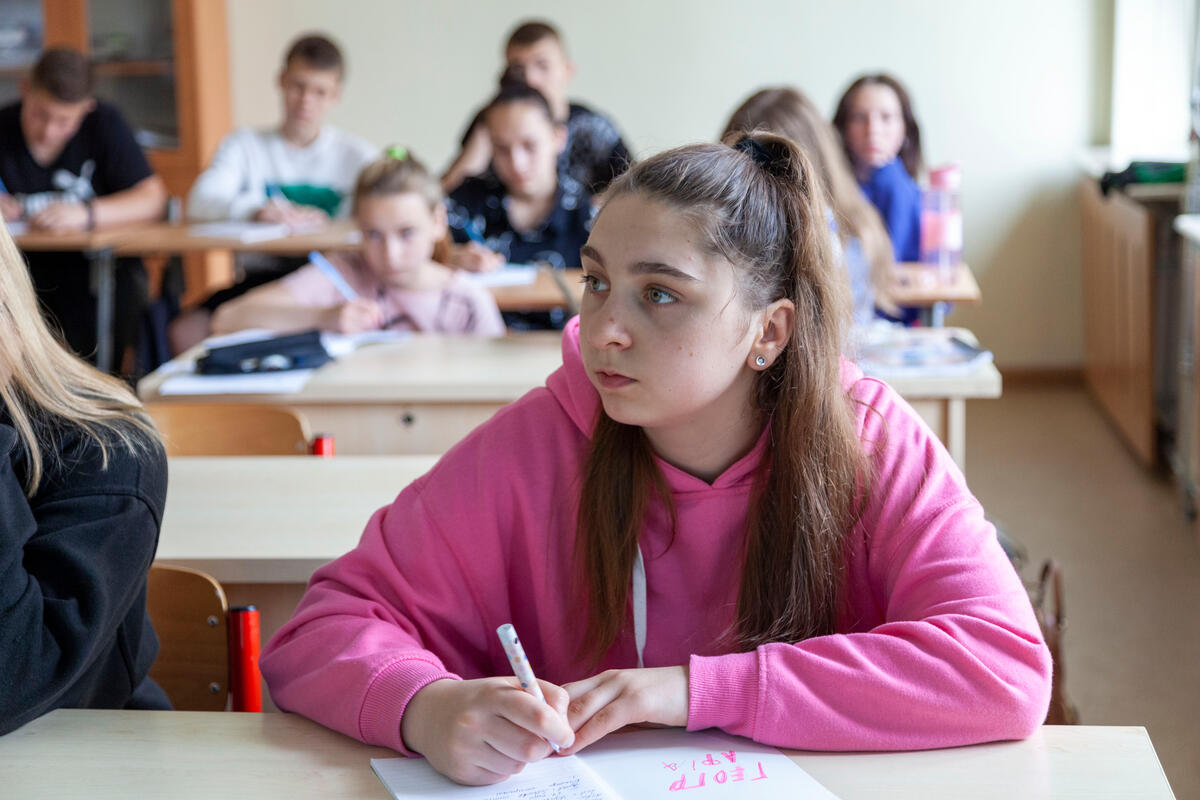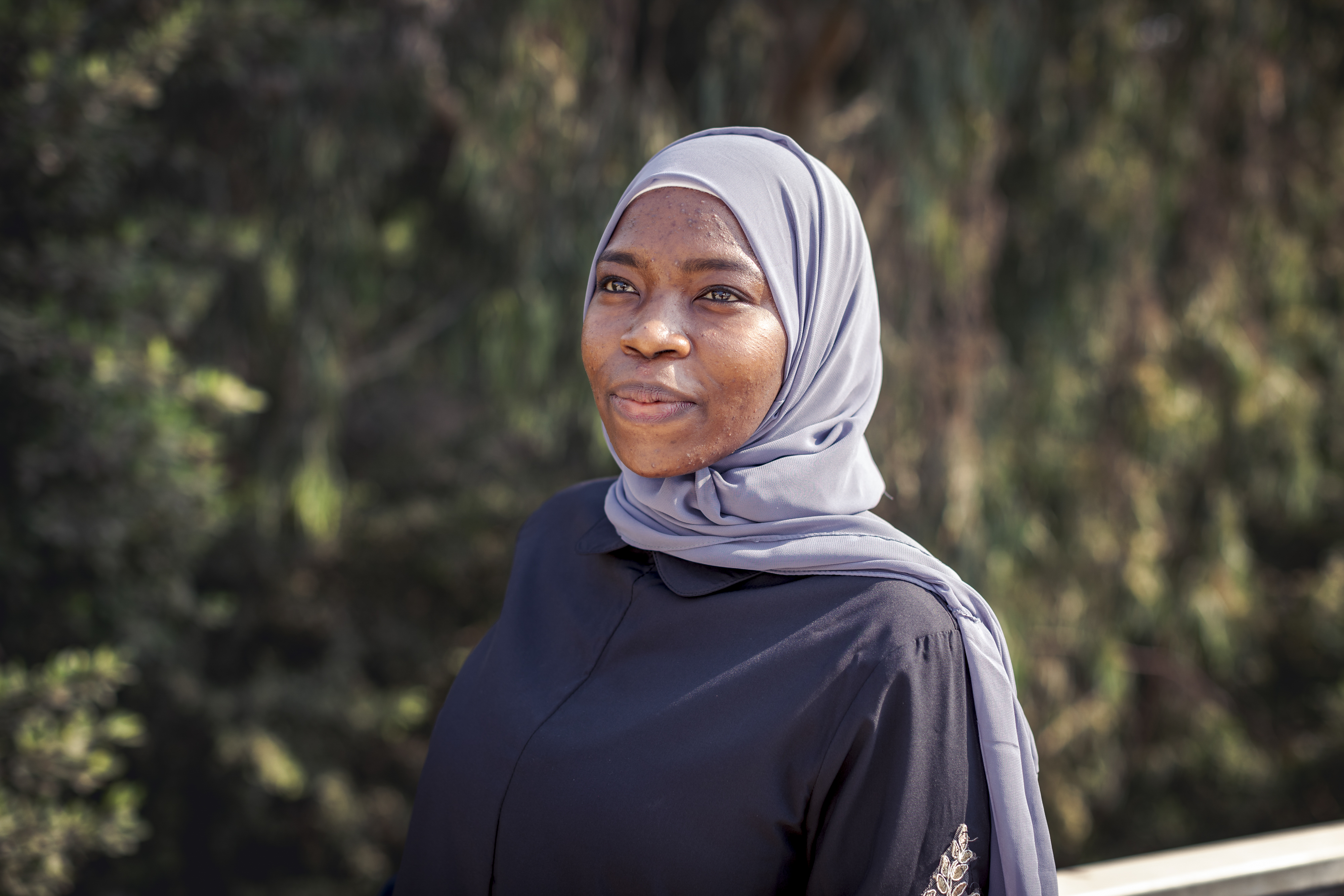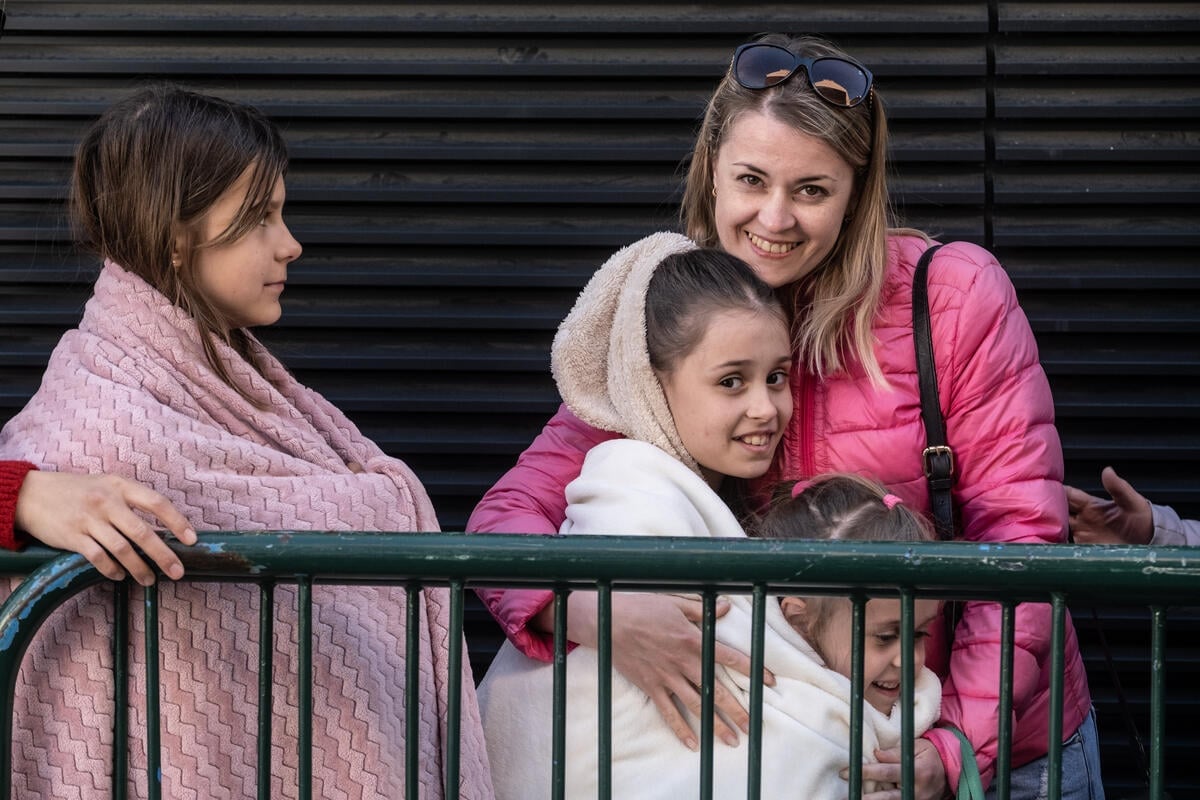DAFI scholarships open a window for Armenian girls in Moldova
DAFI scholarships open a window for Armenian girls in Moldova

CHISINAU, Republic of Moldova, April 4 (UNHCR) - Asmic Sargsyan and Nora Manvelean were babies when the UN refugee agency launched its DAFI scholarship programme to help bright refugees get a tertiary education and the chance of a better future.
That was 20 years ago; today, the young Armenians are two of the first three refugees to study in Moldova under the Albert Einstein German Academic Refugee Initiative (DAFI). The scheme, funded by Germany, was set up in 1992 to help refugees become self-reliant and to improve their chances of finding a durable solution. More than 6,000 refugees have benefitted.
"DAFI has positively changed my life. All my fears disappeared when I received the opportunity to study what I love," said Manvelean, who is studying for a law degree at the Free International University of Moldova and hopes to contribute to the development of this country in the future.
"Now I don't have to worry about the tuition costs, which are fully covered," added the 25-year-old, who fled from Artashat in Armenia with her parents in 1992 because of religious persecution.
She said that thanks to her DAFI scholarship, she did not have to go out and work to pay her college fees and could instead spend "my leisure time practising oriental dances and playing the piano with my mother."
After arriving in Moldova in 1997, Manvelean, her parents and two siblings faced many challenges in Europe's poorest country, including finding accommodation and employment. But her father found seasonal work and her mother, a classically trained pianist, gave private music lessons.
At school, Manvelean excelled academically and realized at a young age that she wanted to study law so that she could defend and advocate for the most vulnerable and needy people. But then cruel fate intervened when her father, the family breadwinner, became ill and died.
Her dream hung in the balance because "I realized that now my family couldn't afford it," Manvelean said. "Consequently, I decided that after high school I would find an unskilled job and save the money for future studies." But it would put enormous strain on her family, who needed her income.
Then she heard about the DAFI programme and successfully applied for a scholarship, which she received last year, when her BA course began. She hopes that she will get support for all four years. Meanwhile, she says she has "another dream - to contribute to the development of the country I reside in . . . as a qualified lawyer and public policymaker."
Sargsyan received her DAFI scholarship in 2010, allowing her to start a four-year course in pharmaceutical technologies at the Free International University of Moldova. "In two years I'll become a certified manufacturing chemist, which is a profession in high demand here in Moldova," she said.
"My [beneficiary of humanitarian protection] status prevented me from getting access to state scholarship programmes, therefore I couldn't rely on any external support for my university studies," said Sargsyan, whose family came to Moldova from Armenia in 2002. Their lives had been severely affected by a massive earthquake in 1988 and they could not find proper housing.
"DAFI gave me this opportunity [to study] and opened a window to a better future," said the young woman. With a degree, she will have an advantage in this economically troubled country.
Both DAFI scholars said they did not want to return to their homeland, but would prefer to make a future in Moldova. Sargsyan became a Moldovan citizen last year, while Manvelean has applied for nationality. The DAFI initiative provides an opportunity for some ambitious young refugees to establish themselves in a new country.
"DAFI scholarships are giving refugee scholars in Moldova the assistance they need to study and provide necessary support to their families," said Peter Kessler, UNHCR's representative in Moldova.
Some 1,700 students are currently studying on DAFI scholarships in 38 countries around the world.
By Evghenia Stupak in Chisinau, Republic of Moldova









